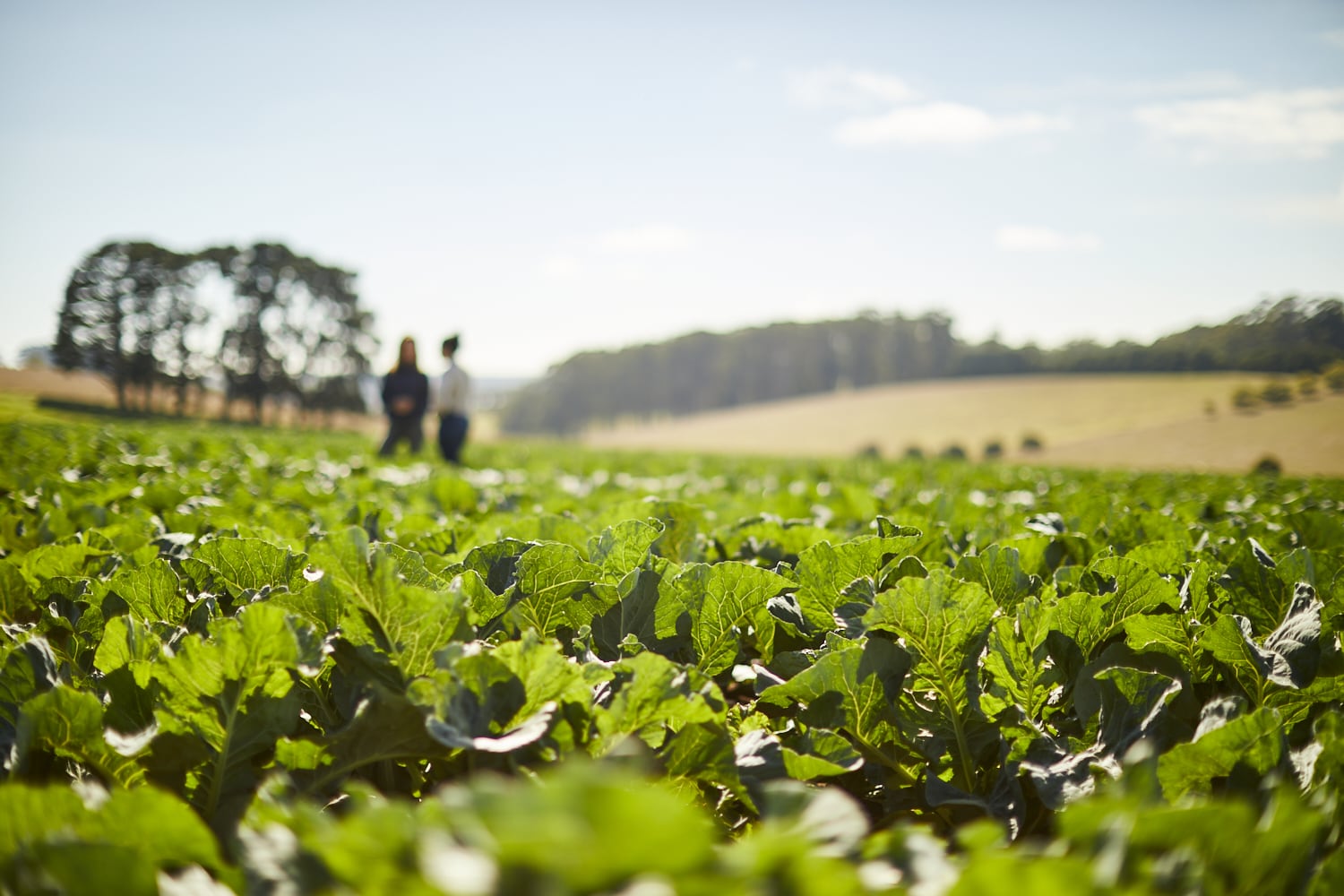Victoria’s farmers have a big role to play in the pursuit of sustainable food production and land management.
Farmers are custodians of the majority of Victoria’s landmass and for producing sustainable food and fibre. Farmers want to protect the landscapes they manage, protect native plant and animal species and meet the Victorian community’s expectations for sustainable land management.
Agriculture is deeply impacted by global climate change and like all of us is also a contributor through the emissions of greenhouse gases like methane from cows and sheep and energy use.
Farmers are doing their bit to reduce on-farm energy use, improve soil health and ensure the next generation can continue to farm sustainably.
The sequestering or locking up CO2 by plants in soil is one of the five priorities in Australia’s Technology Investment Roadmap for low emissions technologies. As custodians of our soil, farmers will be on the leading edge of this technology.
Farming industries are mobilising to address climate change. The red meat industry via Meat and Livestock Australia, is pursuing a goal of being carbon neutral by 2030. The dairy industry has pledged to reduce its emissions by 30% by 2030.
Each major agriculture industry is pursuing research and practice change aimed at reducing energy, feed and water use, improving livestock productivity, finding novel ways to reduce methane emissions from sheep and cattle and adopting renewable energy.
MLA: https://www.sustainableaustralianbeef.com.au/
Wool and Sheep Meat: https://www.sheepsustainabilityframework.com.au/
Dairy: Australian Dairy Sustainability Framework | Dairy Australia
Grains: https://www.graingrowers.com.au/sustainability/grains-sustainability-framework/
Sustainability is not necessarily about organic or low input production. Large family and corporate farms often lead the way in the development and adoption of precision agriculture to make sure every unit of farming land, fertiliser, chemical or animal feed is used in the most efficient and sustainable manner.
Managing the natural environment
Victoria’s farmers led the creation of the Landcare movement in the 1980s. There are now 689 Landcare groups in Victoria, working with local communities to improve sustainable pasture management, restore native vegetation and protect waterways.
Victoria’s farmers strive every year to become more water efficient.
Water is an expensive input for farmers, so saving every drop makes economic sense.
Farming systems: high input, organic and everything in-between
Victoria’s farmers use different production systems to meet consumer demands for different types of food and fibre. To produce large volumes of affordable food many farmers use fertilisers, pesticides, compost, animal manure and other technologies, much in the same way as a gardener in the city uses inputs to maximise production and quality.
For farmers, the use of chemicals is highly regulated. Farmers need to do safe use courses to get access to pesticides and veterinary chemicals and their use is carefully monitored.
Farmers are adopting a precision agriculture approach, where they use GPS technology to minimise use of seed and fertiliser, optical scanners to spot weeds to limit herbicide use, soil health and water availability probes to understand what’s happening in the soil. These and many other pieces of technology and knowledge are deployed to minimise the amount of inputs to maximise outputs.
High input farms live side-by-side with farms who may choose a different farming model, for example to be GMO free or pursue organic production.
Each production system gives the community choice in how food is produced but all must farm within the regulations set by government.
Victoria’s farmers have a big role to play in the pursuit of sustainable food production and land management.
This is your chance to ask real farmers how sustainability comes to life on the land.


